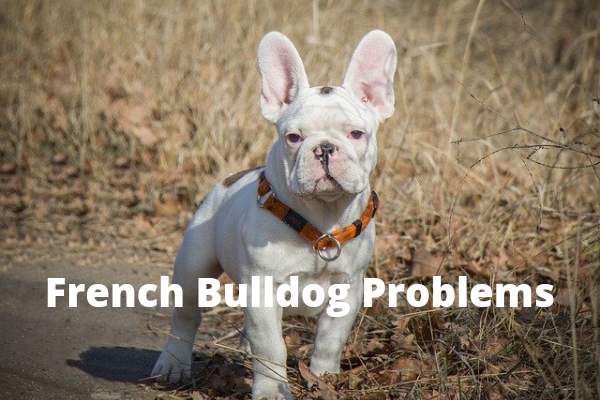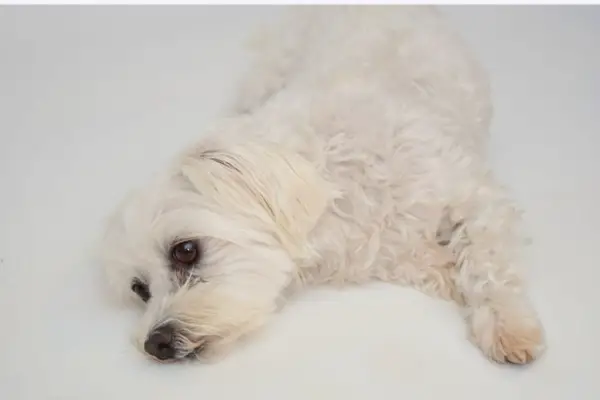Dealing With Havanese Separation Anxiety

Does your Havanese have separation anxiety? If so, you are not alone!
Separation anxiety is a common issue among Havanese dogs, as they are very attached to their owners and can become stressed when left alone.
However, there are steps you can take to help your Havanese cope with separation anxiety and make them feel more secure.
Read this blog post to learn more about the signs of Havanese separation anxiety, tips for managing it, and how to create a safe and comfortable environment for your pup.
Here’s what this post will address:
- What is Havanese Separation Anxiety
- Causes of Separation Anxiety in Havanese.
- Symptoms of Separation Anxiety in Havanese.
- Prevention and Treatment of Separation Anxiety in Havanese.
So let’s get started…
What is Havanese Separation Anxiety
Havanese Separation Anxiety is a condition in which a Havanese dog experiences extreme levels of stress and discomfort when left alone.
Symptoms of separation anxiety include destructive behaviors, excessive barking or whining, and pacing.
If left untreated, this condition can lead to serious health and behavioral issues.
Treatment for separation anxiety in Havanese dogs may include counter-conditioning, increasing exercise, and providing the dog with puzzles and toys to keep them mentally stimulated.
In more severe cases, medications may be prescribed to help reduce anxiety.
Causes of Separation Anxiety in Havanese
Separation anxiety in Havanese dogs can be caused by a variety of factors, including:
- Lack of socialization: A Havanese dog may develop separation anxiety if they have not received the correct socialization. A dog must be positively and carefully introduced to a variety of people, locations, and circumstances as part of the socialization process.
- Changes in routine: Routine-dependent Havanese dogs might become anxious when their daily pattern is significantly altered. This could involve the owner moving to a new house, traveling, or changing their job schedule.
- Trauma or abandonment: Havanese dogs may be more prone to separation anxiety if they have previously been subjected to trauma or abandonment. They could experience attachment problems and develop a phobia of being left alone.
- Lack of exercise: Because of their energy and activity level, Havanese dogs may become restless and worried if they don’t get enough exercise. Playtime and regular exercise help ease separation anxiety.
- Genetic predisposition: Certain dogs may be genetically more prone to anxiety and separation anxiety than others.
- Need for mental stimulation: Havanese dogs need mental stimulation to avoid boredom because they are intelligent. They could experience worry and anxiety if they are left alone with nothing to do.
- Over-attachment: Although Havanese dogs are recognized for their friendly and devoted personalities, some can develop unhealthy levels of attachment to their owners. When the owner is not around, this could cause separation anxiety.
- Medical conditions: In some instances, a Havanese dog’s separation anxiety may be caused by an underlying medical issue. Chronically ill or uncomfortable dogs may feel worried when left alone.
- Lack of training: All dogs, especially Havanese, require proper training. A dog may have separation anxiety if they have not been taught to feel secure in its own company.
It’s critical to determine the root of a Havanese dog’s separation anxiety and to create a strategy with a veterinarian and/or a certified dog trainer to control and reduce the dog’s anxiety.
Learn more about the causes of separation anxiety in dogs.
Symptoms of Separation Anxiety in Havanese
Here are some common symptoms of separation anxiety in Havanese dogs:
- Excessive barking or howling: When left alone, Havanese dogs who suffer from separation anxiety may excessively bark or cry, frequently in an effort to alert their owners to their suffering.
- Destructive behavior: When left alone, Havanese dogs with separation anxiety may exhibit destructive behavior, gnawing on doors, furniture, and other items in an effort to flee or lessen their fear.
- House soiling: Even though they are often well-trained, Havanese dogs with separation anxiety may also foul the house when left alone.
- Pacing and other indicators of restlessness: Havanese dogs who are experiencing separation anxiety may pace back and forth or exhibit other restless behaviors, such as frequently leaping up on furniture or running in circles.
- Escape attempts: When left alone, Havanese dogs with separation anxiety may attempt to break out of their cage, home, or yard, occasionally injuring themselves in the process.
- Excessive salivation or drooling: When left alone, certain Havanese dogs with separation anxiety may drool excessively or have wet, foamy mouths, indicating high levels of stress.
- Loss of appetite: As they are too worried to enjoy their meal, Havanese dogs with separation anxiety may also experience a loss of appetite or refuse to eat when left alone.
- Depression: Some Havanese dogs with separation anxiety may experience depression when left alone, showing a lack of enthusiasm, an absence of interest in play or social connection, or a diminished willingness to engage in activities they usually like.
- Aggression: Due to their extreme levels of worry and dread, Havanese dogs with separation anxiety may in rare instances become aggressive when left alone, either against themselves, other dogs, or people in the home.
Learn more about signs your dog has separation anxiety.
Prevention and Treatment of Separation Anxiety in Havanese
Here are some common ways to prevent and treat separation anxiety in Havanese dogs:
- Desensitization: Desensitization entails exposing the dog to progressively longer amounts of time alone, beginning with brief intervals and working up to longer ones. This can lessen the dog’s anxiety and help it get used to being alone.
- Behavior modification: Treatment of separation anxiety in Havanese dogs commonly involves behavior modification. It entails modifying the dog’s behavior and teaching them independence. For instance, the owner could reward the dog for being calm and relaxed by progressively increasing the amount of time they spend alone.
- Medication: In some circumstances, a veterinarian may recommend medication to help the dog feel less anxious. Anti-anxiety drugs like fluoxetine or clomipramine can help Havanese dogs who are experiencing separation anxiety.
- Counter-conditioning: This entails teaching the dog to link being by itself with pleasurable events. For instance, the owner might offer the dog a reward or unique toy that they can only get when they are left alone.
- Crate training: Crate training can help Havanese dogs cope with separation anxiety. When the dog is feeling frightened or anxious, the crate offers a safe haven for them to withdraw to.
- Exercise and play: Giving Havanese dogs regular exercise and playtime might help them feel less stressed and anxious. This can involve going for walks, running, playing fetch, and other enjoyable activities with the dog.
- Environmental enrichment: Giving the dog environmental enrichment can make them feel less anxious about being separated. These can include interactive items that the dog can play with on their own, such as puzzles, chew toys, and other toys.
- Calming aids: Pheromone diffusers or sprays, calming music, or aromatherapy are a few examples of calming aids that might make Havanese dogs feel less anxious. These tools can help to establish a quiet environment and increase the dog’s sense of security.
- Gradual departures and arrivals: Leaving and arriving at home gradually can make Havanese dogs feel less anxious. Owners can start by going away for little periods of time and then gradually lengthen their absences.
- Socialization: Socialization helps lessen separation anxiety in your Havanese dog. The dog can develop greater self-assurance and experience less separation anxiety by being exposed to a variety of people, animals, and situations.
- Constant routine: Havanese dogs can experience less anxiety when their routine is consistent. The establishment of a regular plan for feeding, exercise, and alone time might make the dog feel safer and less anxious because dogs thrive on routine.
- Positive reinforcement: Teaching Havanese dogs to behave calmly and unhurriedly with the aid of positive reinforcement techniques. When the dog is alone, rewarding calm conduct can assist to reinforce positive behavior and lessen anxiety.
- Avoid punishment: Reprimands should be avoided because they might make a dog’s separation anxiety worse. Punishment can worsen a dog’s behavior by causing them to feel more stressed and anxious.
- Think about having a companion for your pup: Occasionally, getting a second dog can help Havanese dogs that suffer from separation anxiety. The dog can find solace and lessen their nervousness with the help of a friend.
- See a veterinarian: Subtle medical disorders like thyroid or digestive problems might contribute to separation anxiety. A veterinarian should be consulted to rule out any underlying medical concerns if your Havanese dog exhibits significant separation anxiety or does not improve with at-home therapy.
Learn more about stopping separation anxiety in dogs.
Conclusion
Separation anxiety can be a difficult issue to deal with, but with patience and understanding, you can help your Havanese cope with their anxiety and create a safe and comfortable environment for them.
Remember to be consistent with your training and take the time to provide your pup with the love and attention they need.
With the right approach, you can help your Havanese feel secure and provide them with a happy, healthy life.

![Where Do Dogs Get Worms From [10 Top Places] Where Do Dogs Get Worms From](https://petcreeks.com/wp-content/uploads/2021/07/Where-Do-Dogs-Get-Worms-From-768x644.jpg)




![How Dogs Get Heartworm [2 Possible Ways] How dogs get heartworm](https://petcreeks.com/wp-content/uploads/2021/07/how-do-dogs-get-heartworm-768x644.jpg)